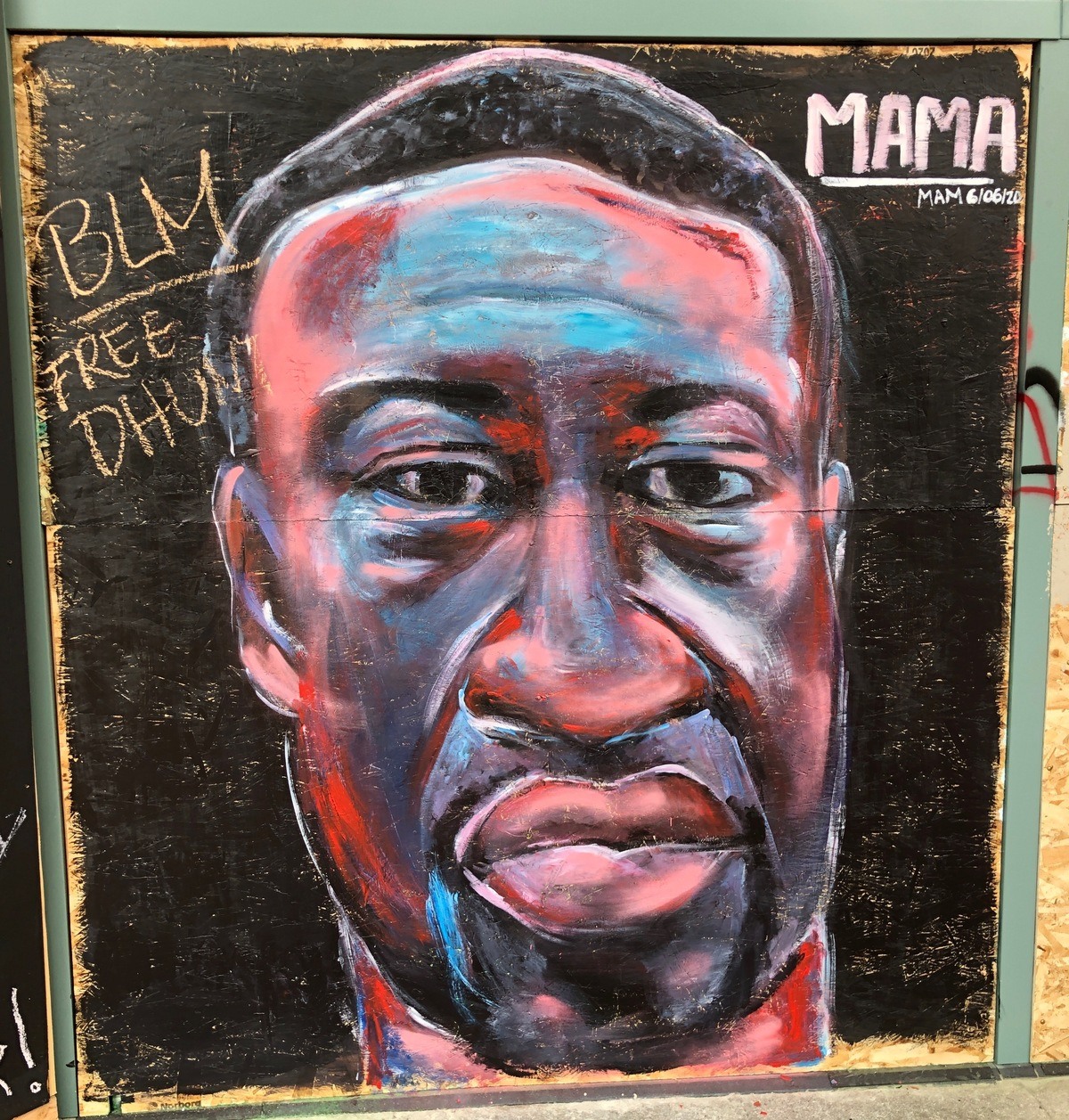
Photograph by Nathaniel St. Clair
Finding George Floyd’s murderer guilty on all three charges was a significant victory for us at the very moment when we, Black people, need to see some justice. At the same time, the specific justice in this particular case doesn’t address the profound systemic change required in our judicial, political, and economic systems. We must not underestimate the work still required to dismantle the systems and institutions that created the conditions in which sworn police officers can build a long history of misconduct, including the intimidation of other officers and taking a human life.
The experience of Black people and Black communities in the United States under anti-Black racism (*) has been servitude, slavery, the sellout of reconstruction and the broken promise of equality, Jim Crow, lynching, and other horrific forms of state-sanctioned violence and brutality. The legacies of segregation, discrimination, and systematic exclusion from the industrial workforce and higher-paying jobs are still present today. The continued denial of programs and benefits afforded to whites is central to the second-class status and treatment experienced by Black people. The cumulative impact of this oppression continues to result in the majority of Black people having to engage in daily struggles for dignity, respect, and basic human rights in all aspects of life — and sometimes even in death.
This last year, we’ve heard many white people espouse their commitment to do better because they now see how Black bodies and Black communities are terrorized continually. Yet, they still have the important work to do of examining their collaboration and collusion with the very systems and structures that enable, enforce, and inflict that violence. They must examine their conscious and subconscious fear of Black men, women, and children. White people must recognize — and take responsibility for — where the demonization of Black people comes from. It is white people who are demonizing us. It is white people who must take responsibility for creating change. Without this, any change that happens won’t be sustainable and systemic. Rather, it will be isolated moments of white people reflecting on their privilege, accompanied by the strategic identification and removal of the “bad apple(s)” and poster-boy racists. Without this deeper reflection and action by white people, nothing will change.
We all have work to do. White folks have a lot of work to do. Not just in the aftermath of the unadjudicated killing of a Black man, woman, or child but every day to prevent such violence from happening. This work must narrow the gaps in wellbeing and wellness outcomes in all aspects of human life.